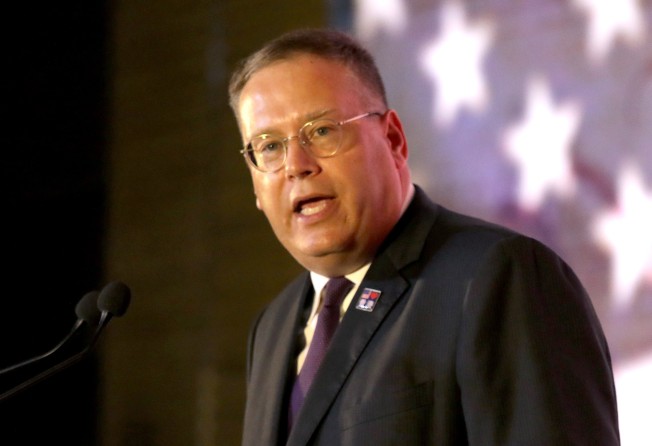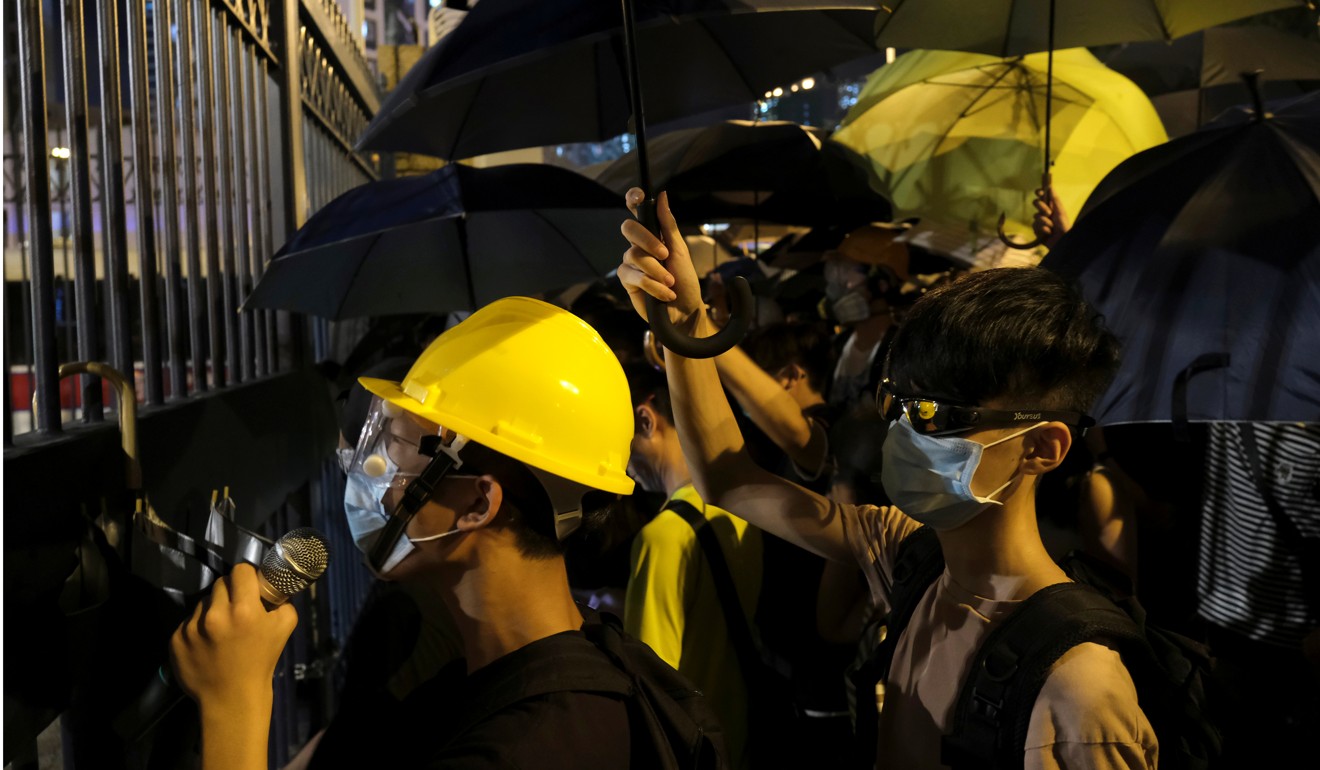Former US envoy Kurt Tong says Beijing should ‘dial back’ its Hong Kong approach amid unrest
- Recently retired diplomat calls on Chinese government to ‘re-establish a little more distance between the rest of China and Hong Kong’
- Tong also suggests that China hawks’ growing influence in Washington has led to an exaggeration of concerns about Hong Kong among some in the US

The United States’ recently departed envoy to Hong Kong on Tuesday called on the Chinese government to temper its approach to handling the city’s affairs amid growing concerns among Hongkongers over mainland influence.
“The mainland government would be well advised to just kind of dial it back a little in terms of how it approaches Hong Kong affairs,” said Kurt Tong, who retired as US consul general to Hong Kong and Macau on July 5.
Tong’s call for restraint from the Chinese government came the same day that Beijing pushed back strongly against similar statements from US Secretary of State Mike Pompeo, accusing the US of being directly responsible for recent violent unrest on Hong Kong streets.
He said Beijing should give Hong Kong “the space that it stated that it would in the Sino-British Joint Declaration or in the Basic Law, and re-establish a little more distance between the rest of China and Hong Kong”.
Tong’s remarks, delivered at the Centre for Strategic and International Studies in Washington, came as widespread protests about Beijing’s influence over Hong Kong affairs approach the two-month mark.
Violent clashes within the protests, spurred by a now suspended proposal to allow extradition of suspects to certain jurisdictions – notably, mainland China – have escalated in recent weeks, amid confrontations with riot police and coordinated attacks by a mob of counterprotesters that left dozens injured.
Tong said it was incumbent on the US government to “be frank ... and be truthful about how we view the situation on the ground in Hong Kong”, but suggested that rising hawkishness against China had led to an exaggeration of concerns about Hong Kong among some US observers.
“I do get worried that sometimes people in the United States choose to criticise the situation in Hong Kong disproportionately because it’s China, and because we feel like we’re in a strategic competitive relationship with China, and therefore if we can score a point on Hong Kong, then a mark went up for our team,” he said.
Tong was a vocal critic of Beijing during his time as envoy, which began in 2016, straddling the Obama and Trump administrations.
Remarks he made in February warning of the risk of Beijing interference in the affairs of Hong Kong, which enjoys executive, legislative and judicial autonomy from the mainland, were criticised by the Chinese government as “distortion and defamatory”.

Beijing has stepped up its rhetoric against Washington as tensions in Hong Kong have grown, this week accusing the US government of being directly responsible for recent violence on the city’s streets, after Pompeo said on Monday that “protest is appropriate”.
“The reason [Pompeo] is saying that the recent violent incidents are reasonable is that – and everyone might know this – this is the work of the US,” Foreign Ministry spokeswoman Hua Chunying said at a regular briefing on Tuesday, ahead of Tong’s speech.
As evidence of what she said was Washington’s orchestration of the unrest, Hua pointed to US officials’ recent meetings with members of Hong Kong’s pro-democracy bloc, the presence of “many American faces” at protests as well as some demonstrators brandishing the US flag.
“Everyone wants to ask: exactly what role has the US played in the recent series of events in Hong Kong?” Hua said. “On this question, I think the US owes the world an explanation.”
Pro-establishment outlets in Hong Kong have jumped on the existence of Caucasian faces in or around protests as proof of foreign interference.
A report published in Beijing-loyalist newspaper Ta Kung Pao purporting to expose a foreigner sending intelligence reports to demonstrators about police movement was debunked when it was revealed the person photographed worked for The New York Times and was sending information to a colleague.
In a statement last week, the US state department said it “categorically reject[ed]” Beijing’s accusations of interference in the protests.
Tong acknowledged on Tuesday that, as a foreigner, his calls for restraint would not be received well by “most Chinese people”.
But, he said, “China is capable of subtlety from time to time in its foreign policy – and this isn’t foreign policy, this is actually internal policy.
“So I remain hopeful that the message will get through.”
His speech on Tuesday was originally scheduled for July 10, but was postponed at the request of the state department.
The delay followed a series of similar moves by the Trump administration to pull back on public condemnation of Beijing by officials while the two countries are locked in high-stakes trade talks.
Before stepping down as the US envoy to Hong Kong, Tong was ordered to water down a speech in which he was expected to condemn the Chinese government over the erosion of the city’s autonomy, according to the Financial Times.
And in June, a scheduled speech by US Vice-President Mike Pence criticising Beijing for its human rights record was put on hold indefinitely, with the White House citing “progress” in conversations between Trump and Chinese President Xi Jinping as the reason for the postponement.
Asked on Tuesday about the state department’s last-minute postponement of his speech, Tong said the rescheduling was related to “getting clearances and bureaucratic procedures”.
“Things always don't go the way they're supposed to,” he said.